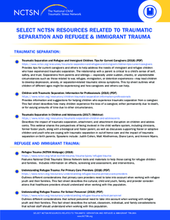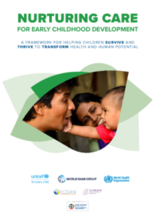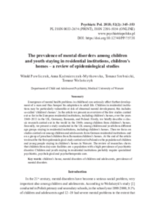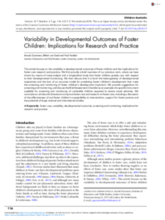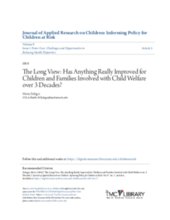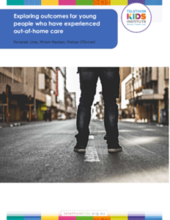Displaying 231 - 240 of 496
This presentation explores the developmental assessment of young children living in out-of-home care using the Ages and Stages Questionnaires® Third Edition.
This document from the U.S. National Child Traumatic Stress Network (NCTSN) identifies existing NCTSN resources related to traumatic separation, refugee and immigrant trauma, and best practices in trauma-informed care for refugee and immigrant children and families.
The Nourished and Thriving Children toolkit was designed by SPOON to build capacity among the foster care community in feeding and nutrition topics so that they are equipped to address challenges commonly experienced by foster children.
This exploratory paper’s purpose is to determine the effect of demographic, risk, and protective factors on social-emotional development, as measured by the Ages and Stages Questionnaire Social Emotional (ASQ:SE), in children age 8 months to 5 years in out-of-home care in Ontario, Canada.
The Nurturing Care Framework provides a roadmap for action. It builds on state-of-the-art evidence about how early childhood development unfolds and how it can be improved by policies and interventions.
This article presents an overview of the few studies carried out so far in the European residential institutions, including children’s homes, over the years 1940–2011 in the UK, Germany, Romania, and Poland.
This article focuses on the variability in developmental outcomes of foster children and the implications for foster care research and practice.
Reframing Early Childhood Development and Learning is a communications toolkit for building public support in Kenya for better child development policies and programmes.
This paper reflects on: what’s better or not after 30 years; whether legislation and financing are aligned with child welfare’s goals of safety, permanency and well-being; and what remains to be done to improve the outcomes of children and youth in foster care or otherwise involved with child welfare.
For this study, physical and mental health, school achievement, justice involvement and child protection contact were explored for three cohorts of children in Australia born between 1 January 1990 and 30 June 1995.

